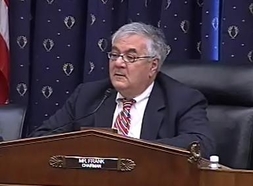






The 10 Biggest Poker Stories of 2009 -- Part 2Card Player Recaps the Most Talked About Stories of the Year |
|
|
Card Player is recapping the 10 biggest — and most talked about — poker stories of 2009. Part 1 featured stories No. 10 through No. 6, while Part 2 highlights the five biggest headlines of the year. From Jeffrey Lisandro to Phil Ivey, and from Russ Hamilton to Isildur1, it was quite a year for poker.
 5. Jeffrey Lisandro Wins Three Bracelets in a Single World Series
5. Jeffrey Lisandro Wins Three Bracelets in a Single World Series
While pros winning multiple bracelets was clearly a big storyline on its own, Jeffrey Lisandro had a summer that completely reshaped his poker identity. Most casual fans only knew of him as the guy who got into a heated argument with Prahlad Friedman over a missing ante (that Lisandro had, indeed, put into the pot — counter to Friedman’s claim), but now most will fully acknowledge that he is one of the best in the game.
Lisandro won three WSOP events this summer, becoming just the fifth player in history — and the first since the poker boom — to accomplish such a feat. It was quite an achievement for the Australian-born pro.
While Lisandro’s historic summer was remarkable, many top pros were already well aware that he was an elite competitor. Before the WSOP began, Barry Greenstein selected him as his partner to take on Erick Lindgren and Daniel Negreanu in a six-figure prop bet over which duo would have the better World Series. Lisandro made sure that the contest wasn’t even close.
“A lot of people might have said before this year that we may not ever see another guy win three bracelets, because the fields are so big,” said Greenstein. “Lisandro proved them wrong.”

Online poker hasn’t won too many battles since the Unlawful Internet Gambling Enforcement Act was passed into law in 2009. It has recruited some notable members of Congress to take up the fight to bring the game out of the shadows and explicitly legalize and regulate it, but no legislation has ever made it to an entire chamber vote in either the House or the Senate.
That’s why the late November developments taken by Treasury and the Federal Reserve Board were so surprising. The departments — at the request of Rep. Barney Frank, several other members of Congress, the Poker Players Alliance and other lobbying groups — decided to delay enforcement of the controversial UIGEA for at least six months as Congress begins a new debate on the merits of regulating the industry.
“This is a great victory for poker, but an even greater victory for advocates of good and fair public policy," PPA Chairman and former U.S. Senator Alfonse D’Amato said, after the delay was announced.
Rep. Frank held a hearing on his online poker bill soon after the announcement and while no committee vote was held, it was a positive step for those in favor of regulation.

It had long been rumored, but the Kahnawake Commission finally confirmed the allegations in September. Russ Hamilton, the 1994 WSOP main-event champ, was the man “primarily responsible” for the cheating scandal that rocked the online poker community and did incalculable damage to the industry.
Nearly two years after the scandal was first uncovered, the Kahnawake Gaming Commission — the Canadian organization that oversees UltimateBet and Absolute Poker — released what it called its final decision on the controversy on September 11.
“In total, the Commission’s investigation revealed 23 accounts that had a total of 117 usernames that were used by the responsible individual(s) to facilitate the cheating incidents,” the report stated. “The incidences of cheating began in June 2003 and continued until December 2007.”
The commission did not publicly release the names of anyone else associated with the scandal, but it did say that it handed over the names of 31 individuals who were “associated” with Hamilton to the authorities. However, it has yet to identify which authorities it was working with.

The Swedish pro who has preferred to go unnamed shook up the high stakes tables at Full Tilt Poker in the latter half of the year in a way that the online poker world had never seen before.
The 12 biggest pots in online poker history occurred in the final two months of the year, and Isildur1 was a part of them all. His relentless style and his willingness to play the highest limits against the best players in the game created the perfect storm for railbirds to enjoy.
The new competitor was at first an enigma for his opponents, as he somewhat handily beat those in his path to the nosebleed tables on Full Tilt. There, he crushed Tom “durrrr” Dwan for reportedly $5.5 million over more than 45,000 hands.
But while he was able to showcase his abilities against Dwan, he was no match for Phil Ivey, Patrik Antonius, Brian Townsend and especially Brian Hastings, who took approximately $4.2 million off the Full Tilt newcomer in a single session.
After nearly two months worth of mind-boggling swings, which saw him up more than $5 million on the site, Isildur1 has lost in the neighborhood of $2 million to $3 million overall in 2009.
Whether or not he returns as a regular to highest stakes on Full Tilt remains to be seen. But there’s no denying that Isildur’s arrival — and his rise and fall — was one of the most riveting poker stories of the year.

Before the 2009 World Series of Poker began, there was some rumbling that this could be Phil Ivey’s summer for the taking.
Ivey, who is most often acknowledged as the best in the game by his peers, was reportedly taking all the action he could find on bracelet events to make the WSOP tournaments, with their relatively small buy-ins compared to what he is used to, all the more engaging.
Daniel Negreanu and Erick Lindgren were so concerned about Ivey’s focus in 2009 that they refused to let Barry Greenstein select him as his partner in their WSOP prop bet.
Well, Ivey didn’t disappoint his fans as he added two more bracelets to his ever growing collection. With seven WSOP wins by the age of 32, Ivey became the youngest player in history to reach that total. Only five players — Phil Hellmuth (11), Doyle Brunson (10), Johnny Chan (10), Johnny Moss (8), and Erik Seidel (8) — have won more WSOP events in the Series’ 40-year history.
As if his two bracelets in 2009 weren’t impressive enough, Phil Ivey then proceeded to make another run at the tournament win he wants the most. Ivey made the final table of the WSOP main event, and entered November’s play seventh in chips. Perhaps no player in the modern era was being rooted on more feverishly than Ivey, but in the end, the Full Tilt pro wasn’t able to get it done.
After folding the best hand once (against Antoine Saout) and then losing a race (to Joe Cada), Ivey pushed all in with ace-king, only to see Darvin Moon call and draw out on him with ace-queen. The seventh place finish was a disappointing conclusion for arguably the world’s best player and the legions of fans who wanted him to win.
While Ivey was unable to take down the big one this year, his results in 2009 showed the rest of the poker community that he has renewed his focus on the WSOP. Whether or not he seriously challenges Hellmuth’s all-time record of 11 career bracelets in the years ahead, only time will tell.
Editor’s Note: This top 10 list and the opinions within are those exclusively of the author and not necessarily that of Card Player.
